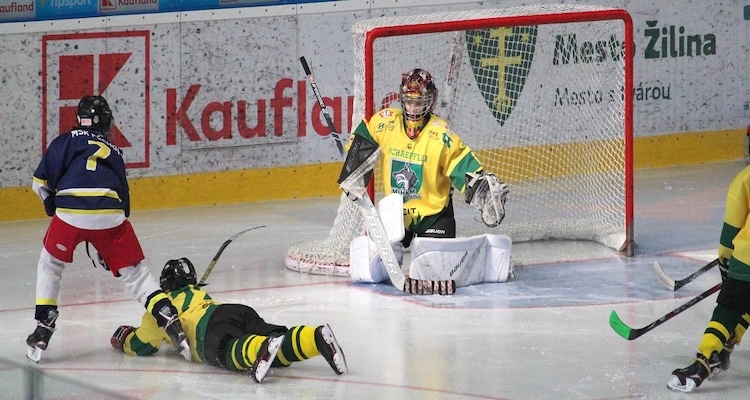
Ice hockey is a demanding sport that requires a unique combination of strength, speed, and endurance. To excel on the ice, athletes need to pay careful attention to their nutrition, as it plays a crucial role in fueling their performance and aiding recovery. It is not surprising therefore that many famous ice hockey players have acknowledged the importance of sports nutrition in optimizing their performance. Here are a few examples:
Engaging with sports nutrition and working closely with a sports nutritionist can be a game-changer for ice hockey players, helping them optimize their energy levels, enhance muscle function, and recover faster from intense training sessions and games. we now turn to explore how in more detail.
Ice hockey is an anaerobic sport characterized by short bursts of intense activity followed by brief periods of rest. To meet the energy demands of the game, players need to ensure they have an appropriate balance of macronutrients – carbohydrates, proteins, and fats.
Carbohydrates are the primary energy source for high-intensity activities, making them crucial for ice hockey players. Sports nutritionists can help athletes tailor their carbohydrate intake to match their training and game schedules. Timing and type of carbohydrates are key considerations to ensure a sustained energy release throughout a game.
Proteins are essential for muscle repair and growth, making them vital for ice hockey players who engage in rigorous training sessions. A sports nutritionist can help players determine their protein needs, considering factors like body weight, training intensity, and muscle mass.
Fats are another important component of an ice hockey player's diet, contributing to overall health and providing a secondary energy source. The type and quantity of fats consumed should be carefully monitored, with the guidance of a sports nutritionist, to optimize performance.
Hydration is often underestimated but is fundamental for peak performance on the ice. Dehydration can impair cognitive function, reaction time, and overall endurance. A sports nutritionist can develop personalized hydration plans, ensuring players are adequately hydrated before, during, and after games.
Every ice hockey player is unique, and their nutritional needs can vary based on factors such as age, position, training intensity, and overall health. A sports nutritionist can assess these individual factors and design a customized nutrition plan tailored to the specific requirements of each player.
Working with a sports nutritionist provides players with the opportunity to address their personal goals, whether it's building muscle, increasing endurance, or managing body weight. These professionals can conduct thorough assessments, including body composition analysis, to create plans that optimize performance and contribute to long-term athletic success.
Ice hockey players often engage in intense training sessions and competitions that can lead to muscle fatigue and soreness. Proper nutrition is essential for optimizing performance and expediting recovery. A sports nutritionist can play a crucial role in this process.
By ensuring adequate nutrient intake, sports nutritionists help ice hockey players maintain optimal energy levels throughout games and practices. This can lead to improved endurance, enhanced focus, and increased power on the ice. Additionally, a well-designed nutrition plan can help minimize the risk of injuries, as the body is better equipped to handle the physical demands of the sport.
Post-game and post-training nutrition are equally important. Sports nutritionists can advise players on the right combination of nutrients to consume after exertion, promoting muscle recovery and reducing inflammation. This includes a balance of carbohydrates and proteins to replenish glycogen stores and initiate the repair of muscle tissues.
Engaging with sports nutrition is not just about short-term gains on the ice; it's also an investment in long-term health and wellness. Ice hockey players put their bodies through rigorous training and competition, making it essential to support overall health through proper nutrition.
A sports nutritionist can help players establish healthy eating habits that contribute to overall well-being. This includes guidance on maintaining a balanced diet, managing body weight, and incorporating essential vitamins and minerals for optimal health. By addressing nutritional needs comprehensively, athletes can reduce the risk of injuries, enhance recovery, and sustain peak performance over the course of their careers.
In addition to designing personalized nutrition plans, sports nutritionists play a vital role in educating ice hockey players about the importance of nutritional awareness. Understanding how specific nutrients impact performance and recovery empowers athletes to make informed choices about their diet.
Sports nutritionists can educate players on reading food labels, making healthy food choices, and understanding the role of supplements. This knowledge equips athletes to make sound decisions about their nutrition, even outside the structured environment of training sessions and games.
Successful sports performance is the result of a collaborative effort among various professionals, including coaches, strength and conditioning specialists, physiotherapists, and nutritionists. In the context of ice hockey, a cohesive support team can make a significant difference in an athlete's career.
Sports nutritionists collaborate with other members of the support team to ensure that all aspects of an athlete's performance are addressed comprehensively. This integrated approach helps create a holistic training and recovery plan that maximizes the potential of ice hockey players.
Engaging with sports nutrition and working closely with a sports nutritionist is a strategic investment for ice hockey players aiming to excel in their sport. From optimizing energy levels to expediting recovery and promoting long-term health, the benefits of a well-designed nutrition plan are vast. By acknowledging the importance of individualized nutrition, athletes can unlock their full potential on the ice and enjoy a sustained, successful career in the world of ice hockey.
If you would like to explore the role of sports nutrition or find a sports nutritionist to work with then do search our global directory of sport performance specialists.
Image by RoboMichalec from Pixabay
